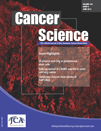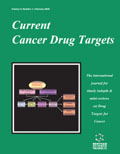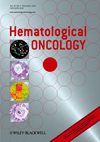
Translational Cancer Research
Scope & Guideline
Pioneering new frontiers in translational oncology.
Introduction
Aims and Scopes
- Molecular Mechanisms of Cancer:
The journal focuses on the molecular and cellular mechanisms underlying cancer development and progression, including studies on gene expression, signaling pathways, and tumor microenvironment interactions. - Biomarker Discovery and Validation:
There is a strong emphasis on identifying and validating new biomarkers for cancer diagnosis, prognosis, and treatment response, utilizing bioinformatics, genomics, and proteomics approaches. - Therapeutic Strategies:
Research articles often explore novel therapeutic strategies, including targeted therapies, immunotherapies, and combination treatments, assessing their effectiveness and safety through clinical trials and preclinical studies. - Clinical Research and Trials:
The journal publishes findings from clinical studies aimed at improving treatment protocols and understanding patient responses, including retrospective analyses, meta-analyses, and randomized controlled trials. - Translational Approaches:
A unique contribution of the journal is its commitment to translational research, integrating laboratory findings with clinical practices to enhance therapeutic outcomes in cancer patients.
Trending and Emerging
- Immunotherapy and Combination Treatments:
There is a growing emphasis on the exploration of immunotherapy, particularly its combination with other treatment modalities, showcasing the potential for enhanced efficacy in cancer therapies. - Bioinformatics and Computational Biology:
The application of bioinformatics tools for data analysis, particularly in genomics and proteomics, is gaining traction as researchers seek to identify novel biomarkers and therapeutic targets. - Cancer Microenvironment Studies:
Research focusing on the tumor microenvironment, including immune cell interactions and extracellular matrix components, is increasingly relevant as it plays a crucial role in tumor progression and therapy resistance. - Liquid Biopsies and Non-Invasive Diagnostics:
The emergence of liquid biopsy techniques for cancer detection and monitoring is a significant trend, reflecting a shift towards less invasive diagnostic methods that provide real-time insights into tumor dynamics. - Personalized Medicine Approaches:
There is an increasing trend towards personalized medicine, with studies focusing on tailoring treatments based on individual genetic profiles and tumor characteristics to improve patient outcomes.
Declining or Waning
- Traditional Chemotherapy Studies:
Research focused solely on traditional chemotherapy regimens without the integration of newer modalities such as immunotherapy or targeted therapy has decreased, reflecting a shift towards more innovative treatment approaches. - Basic Science Studies without Clinical Relevance:
There is a noticeable waning interest in basic science studies that do not directly translate to clinical applications or patient outcomes, as the focus shifts towards more applicable research. - Single-Agent Drug Trials:
The frequency of publications centered on single-agent drug trials has diminished, as combination therapies and personalized medicine strategies gain more attention in the quest for effective cancer treatments.
Similar Journals

Cancers
Advancing cancer research for a healthier tomorrow.Cancers is a leading peer-reviewed journal published by MDPI, dedicated to advancing the field of oncology and cancer research. Established in 2009 and based in Switzerland, this Open Access journal provides a platform for the rapid dissemination of high-quality research findings, reviews, and clinical studies related to all aspects of cancer biology and treatment. With an impressive impact factor and recognized as Q1 in Oncology and Q2 in Cancer Research for 2023, Cancers strives to foster a collaborative environment among researchers, healthcare professionals, and students seeking to deepen their knowledge and understanding of cancer. The journal’s commitment to accessibility and its broad scope make it an invaluable resource for anyone passionate about combating cancer and improving patient outcomes. For more information and to access its diverse publications, visit the journal’s website.

Annual Review of Cancer Biology
Charting New Directions in Cancer StudiesAnnual Review of Cancer Biology is a pivotal journal published by Annual Reviews, specializing in the rapidly evolving field of cancer research. With an impact factor positioned in the distinguished Q1 quartile of Cancer Research, Cell Biology, and Oncology categories, this journal ensures that it showcases the highest quality of scholarly contributions. Indexed in Scopus, it ranks among the top in its fields, reflecting its strong influence and relevance, with remarkable percentiles indicating its esteemed position within the research community. Although not an open-access journal, it provides a comprehensive platform for advancing the frontiers of cancer biology through rigorously curated reviews, highlighting key developments, breakthroughs, and future directions that inform both academia and clinical applications. As a valuable resource for researchers, professionals, and students, the Annual Review of Cancer Biology serves as an essential guide for understanding and addressing the complexities of cancer biology today.

NATURE REVIEWS CANCER
Discovering Breakthroughs in Cancer Biology and TreatmentNATURE REVIEWS CANCER, a premier journal published by NATURE PORTFOLIO, stands as a cornerstone in the field of oncology, focusing on delivering high-quality, comprehensive reviews that shape our understanding of cancer biology, prevention, and treatment. With an impressive impact in the academic community, it ranks Q1 in both Cancer Research and Oncology categories as of 2023, further denoted by a remarkable Scopus ranking as the top journal in Cancer Research and second in Oncology. This ensures that published articles not only set the standard for scientific excellence but also drive significant advancements in cancer research methodologies and practices. The journal's targeted audience, including researchers, practitioners, and students, will greatly benefit from its insightful analyses and interdisciplinary approach. While it operates under a traditional subscription model, the rich content and vast expertise presented in its articles foster a global dialogue on cancer-related issues, making it an essential resource for anyone dedicated to the advancement of cancer science.

Discover Oncology
Empowering collaboration for groundbreaking therapeutic discoveries.Discover Oncology, published by SPRINGER, is an influential journal based in Germany that focuses on the latest advancements in the fields of oncology and endocrinology. With an evolving scope that spans critical research from 2021 to 2024, this journal aims to provide a platform for innovative ideas and research findings that can significantly impact clinical practices. Although it currently holds a Q3 ranking in several Cancer Research and Endocrine category quartiles, its commitment to open access ensures that relevant knowledge is available to a wider audience, facilitating the exchange of ideas among researchers, professionals, and students. As evidenced by its growing presence in various medical spheres, including a Q2 ranking in Endocrinology and Diabetes, the journal plays a crucial role in advancing multidisciplinary research that integrates oncology with broader biological and medical parameters. For those in the field, Discover Oncology serves as both a resource and a community hub, encouraging collaboration and exploration of emerging findings that can lead to novel therapeutic approaches.

Oncologie
Exploring innovative solutions in oncology.Oncologie is a distinguished academic journal published by WALTER DE GRUYTER GMBH, focusing on the dynamic and vital field of oncology. Established in 1999 and continuously published until 2024, this journal provides a platform for high-quality research and advancements in cancer treatment, prevention, and diagnosis. With an ISSN of 1292-3818 and an E-ISSN of 1765-2839, it is indexed in various databases, contributing to its growing visibility. Although categorized in the Q3 quartile for oncology research as of 2023, Oncologie offers essential insights and fosters scholarly dialogue among researchers, professionals, and students interested in oncology. Its unique contributions aim to bridge the gap between theoretical frameworks and clinical applications, making it a valuable resource for those seeking to advance their knowledge and expertise in cancer research.

CANCER SCIENCE
Pioneering discoveries in cancer biochemistry and genetics.Cancer Science, an esteemed journal published by Wiley, stands at the forefront of oncology research, boasting an impressive impact factor and a classification in the Q1 category for its contributions in Cancer Research, Medicine, and Oncology as of 2023. Since its inception in 2003 and transitioning to an Open Access model in 2014, the journal has facilitated global dissemination of critical research findings, ensuring that vital information remains accessible to researchers, clinicians, and students alike. With its comprehensive scope covering cutting-edge discoveries in cancer biochemistry, genetics, and molecular biology, Cancer Science is recognized for its rigorous peer-review process and significant contributions to advancing our understanding of cancer. The journal, located at 111 River St, Hoboken, NJ, is an essential resource for anyone dedicated to improving treatment outcomes and pushing the boundaries of cancer research.

CURRENT CANCER DRUG TARGETS
Connecting knowledge and innovation in cancer drug development.CURRENT CANCER DRUG TARGETS is a prominent academic journal published by Bentham Science Publishers Ltd, focusing on the critical intersection of cancer research and innovative drug development. Since its inception in 2001, this journal has offered a platform for the dissemination of cutting-edge research aimed at advancing targeted cancer therapies, contributing significantly to the fields of Cancer Research, Drug Discovery, Oncology, and Pharmacology. With a respectable impact factor and consistent ranking in its respective categories, including Q2 in Drug Discovery and Pharmacology, it positions itself as an invaluable resource for researchers, clinicians, and students alike. CURRENT CANCER DRUG TARGETS is dedicated to enhancing our understanding of novel therapeutic targets and methods, thereby fostering a collaborative environment for knowledge exchange in the ever-evolving landscape of cancer treatment.

HEMATOLOGICAL ONCOLOGY
Advancing the Frontiers of Hematological ResearchHEMATOLOGICAL ONCOLOGY, published by Wiley, is a premier journal in the fields of cancer research, hematology, and oncology, with a rich history of publication dating back to 1983. With an impact factor indicative of its influential standing—ranking in the second quartile in multiple categories including Cancer Research, Hematology, and Oncology—this journal serves as a vital resource for researchers, clinicians, and students alike. HEMATOLOGICAL ONCOLOGY is based in the United Kingdom and focuses on the advancements and challenges in the understanding and treatment of hematological malignancies. While it does not offer open access options, its rigorous peer-review process ensures that all published articles are of the highest quality, contributing to the ongoing dialogue and research in this critical area of medicine. With its commitment to disseminating impactful research, HEMATOLOGICAL ONCOLOGY remains an essential platform for driving innovation and collaboration within the global scientific community.

Molecular Cancer
Exploring the forefront of molecular medicine and prevention.Molecular Cancer, published by BMC, stands as a premier open access journal dedicated to advancing our understanding of cancer biology, treatment, and prevention since its inception in 2002. With an impressive Q1 ranking in the domains of Cancer Research, Molecular Medicine, and Oncology, this journal occupies a significant position in the academic landscape, emphasizing high-quality research that influences clinical practices and future studies. The journal is indexed in leading databases with exceptional Scopus ranks, reflecting its rigorous peer-review process and impactful contributions to the field, where it ranks in the top 2-3 positions across various relevant categories. Based in the United Kingdom, Molecular Cancer offers researchers worldwide a valuable platform for disseminating innovative findings that drive the biomedical community forward. The journal's open access model ensures that groundbreaking research is freely accessible, fostering collaboration and knowledge sharing among professionals, students, and academics alike. Explore cutting-edge developments in cancer research through Molecular Cancer and join a community committed to improving patient outcomes and advancing scientific discovery.

CANCER IMMUNOLOGY IMMUNOTHERAPY
Fostering Breakthroughs in Cancer Treatment StrategiesCancer Immunology Immunotherapy, published by Springer, stands as a premier journal in the fields of cancer research and immunology, holding a prestigious Q1 ranking across multiple categories, including Oncology and Medicine as of 2023. With an ISSN of 0340-7004 and an E-ISSN of 1432-0851, this journal has been a pivotal platform for groundbreaking research since its inception in 1976, continuing to provide insight into the complex interactions between the immune system and cancer. The journal's scope encompasses a wide array of topics, including novel therapeutic strategies, immunological mechanisms, and translational science aimed at advancing treatment outcomes for cancer patients. Renowned for its rigorous peer-review process and high impact factor, it attracts contributions from leading experts and researchers around the globe, positioning itself among the top-tier publications with Scopus rankings that reflect its vital role in advancing the field. Access options are generally subscription-based, ensuring a comprehensive resource for professionals and academics seeking to deepen their understanding and make meaningful contributions to cancer immunotherapy.